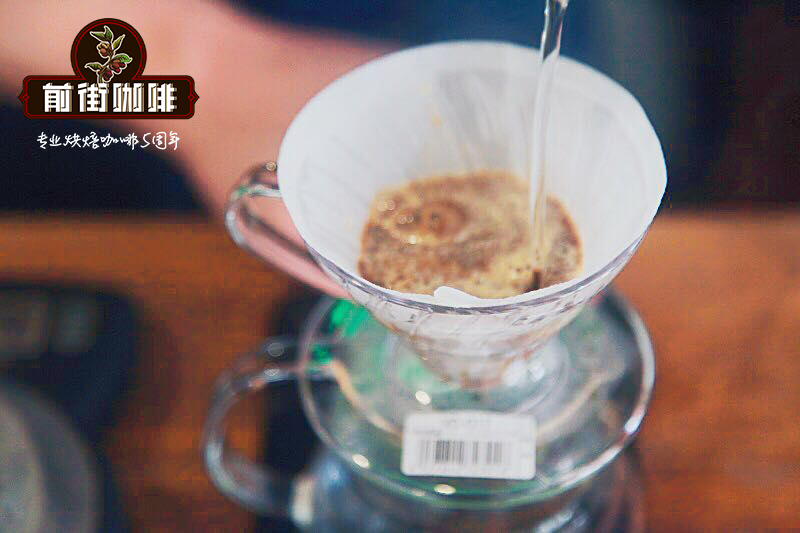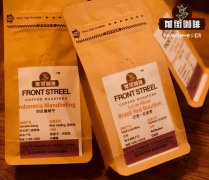What's the flavor of Ethiopian coffee beans? is Ethiopian coffee beans expensive?

Professional coffee knowledge exchange more coffee bean information please follow the coffee workshop (Wechat official account cafe_style)
The secret of Ethiopian coffee beans: coffee was not originally called coffee. In Ethiopia, there is a province called Kafa province, which produces a kind of plant fruit, which has mellow, sweet, fruity, sour and bitter flavors, and has a refreshing and calming effect after eating. European colonists brought the plant to Europe when they plundered the African continent. At the same time, Arab countries also spread the plant to Central Asia and Southeast Asia. Over time, people have harmonized this plant, which is rich in the African province of Kafa, and called it coffee.
● Secrets of Ethiopian Coffee beans
Coffee is not only bitter, but also sweet, sour, mellow and fragrant. According to the origin, mellow and sour taste is different. Bitterness is the taste of caffeine, although it has been cultivated and propagated for thousands of years. Mellow is the taste of fat and protein in coffee after baking, which is a bit like the mellow of our minority buttered tea. The sour taste is tannin, and yes, it is the kind of thing rich in red wine. Sweetness is the role of plant fructose produced by coffee in the process of roasting and coking, and the degree of sweetness varies according to varieties and production processes. Blue Mountain Coffee, the second most expensive coffee in the world, is famous for its rich flavor, strong sense of hierarchy, sparse production and high price caused by the monopoly of some trading companies. China has no record of importing Blue Mountain before 2008, at least the customs has no relevant import information. There is no denying that China has authentic Blue Mountain coffee, either brought by private individuals or smuggled. Therefore, when you taste the Blue Mountain in the cafe, you should pay attention to the fact that the merchants with a better conscience can say the Blue Mountain flavor, which means using many different varieties of coffee beans to match the Blue Mountain flavor.
It is also imported, but Europe and the United States retain many flavors of coffee. And most of our Chinese coffee drinks are only bitter and coffee aroma, as for sweet, mellow, fruity, sour, and some people think that the bitter the better, tell you that this concept is wrong. Roasting is an important part of coffee making process, and roasting is the process of coffee coking. The role of temperature in the roasting process releases sweetness, alcohol and acid in coffee. Heavy baking disappears these flavors, leaving only the bitterness of caffeine. Therefore, the concept that the more bitter the better, is wrong. This concept is influenced by the island country or Taiwan. Sumatra is rich in a famous coffee variety, Mantenin, which is suitable for heavy roasting and roasting is the process of coking coffee fructose. During World War II, a Japanese soldier tasted the coffee in Sumatra and was introduced to Japan after the war. Using heavy baking technology, exported to Taiwan and East Asia and Southeast Asia, this company is Japan's famous Pwangni Coffee Company. The bitter taste of this very good variety of coffee has the upper hand, so that the other flavors have almost disappeared, if you are a heavy mouth, it is very suitable. Some instant coffee which is also popular in China, if you can taste the sweet, sour and mellow taste, then I will bow to you and admire it. The raw materials of these instant coffee are low-grade commercial beans, including insect beans and weak beans, using heavy baking technology, and heavy roasting brings heavy coking, that is, removing the miscellaneous taste of insect beans and weak beans, leaving only bitter taste, in order to improve the mellow taste, specially add milk, sugar and other additives, not only reduce the cost, but also improve the taste, but consumers are kept in the dark. Of course, insect beans, weak beans can not be eaten, but the taste is not very good, and beauty ladies drink instant coffee for a long time, very easy to get fat, be careful.
The craft of making coffee in China is generally not high, and Chinese people taste coffee nothing more than cafes or instant coffee, resulting in the concept that today's coffee is only bitter. There are places with high coffee production technology in China, due to historical and geographical conditions, high-level production techniques are mostly concentrated in Hong Kong and Macao, and some Hong Kong and Macao manufacturers even participate in the formulation of international coffee production standards, especially in Macao. Macao people have a tranquil nature, how much to eat, not greedy, traditional production techniques have been passed down, less use of additives, perfect preservation of the true taste of coffee. Brands such as Macao's "Eslite" and "Prince Yin" may not be familiar to mainlanders. Before the return, several Australian governors were loyal users and exported to Portugal and Brazil. Exporting Portugal may not be a big deal, but exporting to Brazil shows their craftsmanship, because Brazil is the world's largest coffee producer, providing 30% of the world's coffee. Hong Kong and Macao manufacturers are also very particular about the use of raw materials, the vast majority of raw beans are famous varieties with certificates of origin, interested friends can give it a try.
Yunnan Province of China also produces coffee beans, but the quality is generally not high. The reason is that small farmers plant and harvest raw beans unevenly. Unlike large coffee countries such as Brazil and Africa, they are all large estates. A number of raw beans are of the same quality, and merchants like to purchase. It is suggested that Yunnan should adopt large manor production and planting, consolidate the foundation of China's coffee industry, revitalize Yunnan coffee industry, and "make the world fall in love with China."
● Ethiopian coffee bean brand recommendation
The Ethiopian coffee beans baked in Qianjie Coffee-washed Yegashifi G1 [Kochel] are fully guaranteed in terms of brand and quality. And more importantly, the performance-to-price ratio is extremely high, a pack of half a pound 227 grams, the price is only about 75 yuan. According to the calculation of 15 grams of powder per cup of hand-brewed coffee, 15 cups of coffee can be made in a bag, and each cup of coffee costs only about 5 yuan, which is very cost-effective for coffee shops to sell dozens of yuan a cup.
Qianjie coffee: Guangzhou bakery, the store is small but a variety of beans, you can find a variety of unknown beans, but also provide online store services. Https://shop104210103.taobao.com
Important Notice :
前街咖啡 FrontStreet Coffee has moved to new addredd:
FrontStreet Coffee Address: 315,Donghua East Road,GuangZhou
Tel:020 38364473
- Prev

Ethiopian Coffee Bean Story-relationship between Ethiopian Coffee Bean grading and defect rate
Professional coffee knowledge exchange more coffee bean information please follow the coffee workshop (Wechat official account cafe_style) in all the coffee producing areas, the most familiar is Ethiopia, because this is the recognized birthplace of coffee. At first, coffee fruit was regarded as a fruit rather than a drink. Ethiopian coffee beans taste very diverse, from oranges and flowers
- Next

Introduction to the cultivation of coffee beans in Ethiopia _ how to buy coffee beans in Ethiopia
Professional coffee knowledge exchange more coffee bean information please follow the coffee workshop (Wechat official account cafe_style) Ethiopia is located between 3 and 14 degrees north latitude, coffee planting area of nearly 600000 hectares. There are two rainy seasons a year in the south and east of the country, while there is only one rainy season in the west. The distribution of the rainy season is different, so coffee is harvested in Ethiopia all the year round. Coffee
Related
- Detailed explanation of Jadeite planting Land in Panamanian Jadeite Manor introduction to the grading system of Jadeite competitive bidding, Red bid, Green bid and Rose Summer
- Story of Coffee planting in Brenka region of Costa Rica Stonehenge Manor anaerobic heavy honey treatment of flavor mouth
- What's on the barrel of Blue Mountain Coffee beans?
- Can American coffee also pull flowers? How to use hot American style to pull out a good-looking pattern?
- Can you make a cold extract with coffee beans? What is the right proportion for cold-extracted coffee formula?
- Indonesian PWN Gold Mandrine Coffee Origin Features Flavor How to Chong? Mandolin coffee is American.
- A brief introduction to the flavor characteristics of Brazilian yellow bourbon coffee beans
- What is the effect of different water quality on the flavor of cold-extracted coffee? What kind of water is best for brewing coffee?
- Why do you think of Rose Summer whenever you mention Panamanian coffee?
- Introduction to the characteristics of authentic blue mountain coffee bean producing areas? What is the CIB Coffee Authority in Jamaica?

